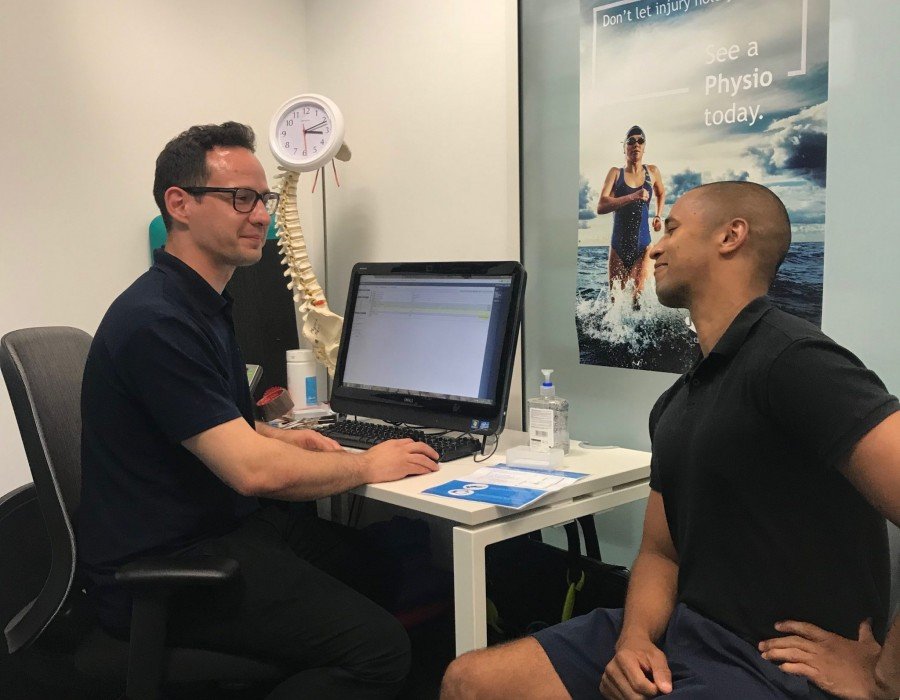General
Weary of recurring injuries? We take a look at how you can stop the cycle…

What happens when we get hurt? Is a sprain different to a strain? How does a fracture heal? Let’s talk about recurring injuries and what you can do to make sure that it doesn’t happen again.
With any injury or pathology, there is an automatic trigger for the start of the inflammatory process. Certain chemicals occur as a byproduct of this event. These chemicals can cause pain, swelling, redness and even muscle spasm.
In order to relieve the pain, we must (if necessary) rest, ICE, stop exercises and visit our doctor to get our injury treated.
Normally, we would take some anti-inflammatory medication or pain killers, wear a brace and rest. Once the pain finally subsides, we jump back to our busy lifestyle and continue until we run into (sometimes literally) the issue again.
Why do recurring injuries sometimes happen again and again?
Recurring injuries are very common. But why does this happen and what can you do to break the cycle?
Studies have shown that after an episode of pain, the tissues around the affected joint learn to complete tasks with compensatory techniques. This occurs once the acute “painful” phase settles.
For example, it is not uncommon for people with neck pain, such as IT professionals or those who drive for long periods of time, to point out that their neck and shoulders are stiff and sore. This happens because one set of muscles has repeatedly learnt to overwork, to compensate for another set of muscles which are weak. Until we relax the tired muscle and strengthen the weak ones, we will never be able to achieve long-term results.
This cycle can lead to repetitive early wear and tear, thus producing a faulty movement pattern which ultimately leads to recurrences.
A moment to Reflect?
- ” My friends tell me my bowling pattern is odd.”
- “I try sitting straight in my office and have even invested in an expensive lumbar support, but I still find myself slouching.”
- “I do adequate warm up and cool downs, but I am still in pain after long runs.”
- “My neck pain keeps coming back no matter what I do.”
- “My wife tells me my walking pattern is different, but I think it is normal.”
If you identify with any of these complaints, it’s important to make an appointment with a physiotherapist. They will be able to check if you are using the right set/s of muscles for the activity.
Movement analysis and re-training helps us to learn the correct pattern of movement, thereby optimising the muscle efficiency and in turn, keeping pain and recurrences under control.
The ‘pillars’ of muscle work
The four ‘pillars’ of muscle work are:
- Strength
- Flexibility
- Endurance
- Control
The first three of these pillars have gained popularity over the last few years, but when it comes to working out, we seldom think about muscle control. Kinetic control is a vital part of this. Put simply, kinetic control means learning how to move by using the right set/s of muscles.
So how will a physiotherapist use kinetic control to help you?
- Clinically evaluate how you are performing the concerned movement
- Identify the individual muscles which require strengthening and strengthening and show you how you can incorporate these as part of a bespoke daily exercise routine.
- During subsequent visits, your Physio will re-assess the quality of your movement, checking your range of motion and control.
Exercises should be tailored to you
Exercises tailored to your needs can help in building up the muscle memory you require to perform your task effectively.
They can also integrate a good mind-body connection, thereby helping in overcoming chronic pain syndromes. It is vital that you do precise exercises to suit your condition, rather than doing, say, ten random exercises.
If you are suffering from recurring injuries, work with your physiotherapist to understand the root cause of your symptoms, rather than having a quick fix! This can help to save you from more pain and time out from your favourite sport in the long run.
Say goodbye to short-term fixes by booking an appointment with one of our experienced physiotherapists here at Bodyset.